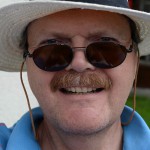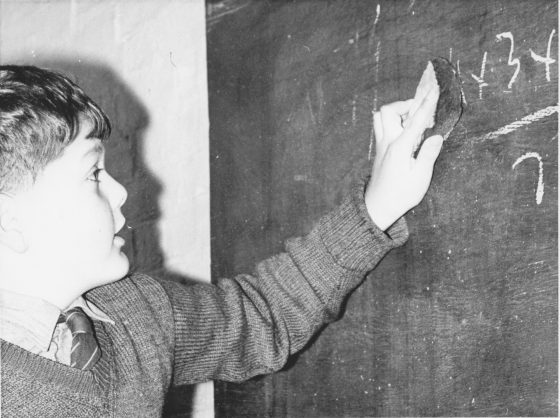It’s interesting that in my first post about how I got into music, I forgot one of the most formative, or rather de-formative, experiences in my musical career.
At age seven, I went for an obligatory audition for the school choir.
Not at all sure that I wanted to be in the school choir, I went into the room with some trepidation.
The music teacher, a florid, larger-than-life character with striped trousers, hit a single note on the upright piano.
‘Sing it,’ he said.
Very nervous, I warbled what was obviously not the same note.
The teacher hit another note.
‘Again.’
Pretty much the same sort of result.
‘You can’t sing,’ said the teacher.
I was ushered rather unceremoniously from the room.
I said in my last post that I only really got into music seriously at age 49.
After an experience like that, it’s a wonder I got into music at all.
* * * * *
I did a lot of acting at university and was tempted by a professional career.
My one great regret in terms of ‘career’ and ‘work’ is that I did not give it a try.
I did a PGCE (post-graduate teacher training) instead of a year at acting school.
Incidentally, if you are young and facing such a decision and are tempted by what your family would call a risky profession, I would strongly encourage you to go for it.
Nothing would prevent you from becoming a teacher later on, and your additional work experience outside the classroom would be invaluable.
But something else that I forgot that I did for a very long time was that I participated in an opera at university. Vaughan Williams’ ‘Pilgrim’s Progress.’
Just in the chorus, of course.
It was only years later, when I was doing a short course in singing with some other people and we were all grouped as sopranos, altos, tenors and basses around the piano that memories of the opera slowly came back. So obviously not an indelible experience. Not an unpleasant one either.
And the short experience of the later course, while pleasant, did not tempt me further towards choral work.
The teacher did say that I had a magnificent baritone voice, though, which would suggest that the pilgrim did not have a monopoly on progression.
* * * * *
I spent two years teaching full-time in an ex-grammar comprehensive school in Hertfordshire.
During that time, I directed three plays and coached a rugby team in addition to teaching English. My life simply wasn’t my own.
On one school day, I was so tired, I didn’t wake up until one o’clock in the afternoon. You can imagine the groveling in front of the headmaster.
Fortunately, I had my escape planned.
I got a grant to go and study for an MA at the University of New Brunswick in Canada.
When I left the school, the headmaster told me I was immature and not committed enough.
* * * * *
After a brief passage in New York, autumn 1981 found me in Fredericton, N.B.
English and American Literature with Creative Writing was a bit of a mouthful of a course, but great fun to do.
I’d chosen it because it was one of the rare graduate courses where you could do creative writing. We had courses in writing poetry and drama as well as the usual academic stuff.
The university had a student radio, CHSR-FM. I was listening to it one day and thought to myself, “I could do better than that.”
It’s easy to criticize, but another thing to try and do better.
So I challenged myself to put my voice where my mouth was, so to speak.
I started presenting jazz and Canadian content shows every week. I played ‘Round Midnight’ by Miles Davis a lot and discovered the Payola$.
I must have been doing something right because the local taxi company contacted the station for an advert and insisted that the voice on it was mine.
So we sat down and tried to come up with a slogan for the ad.
We ended up with, “Bla-Bla taxis take you further than your destination,” whatever that means. Sounded good though.
Wasn’t me who came up with the idea. It was a fellow girl newsreader, who was a bit shocked that as a graduate student of English I wasn’t better at coming up with a punch line.
(to be continued)
Love
Richard

